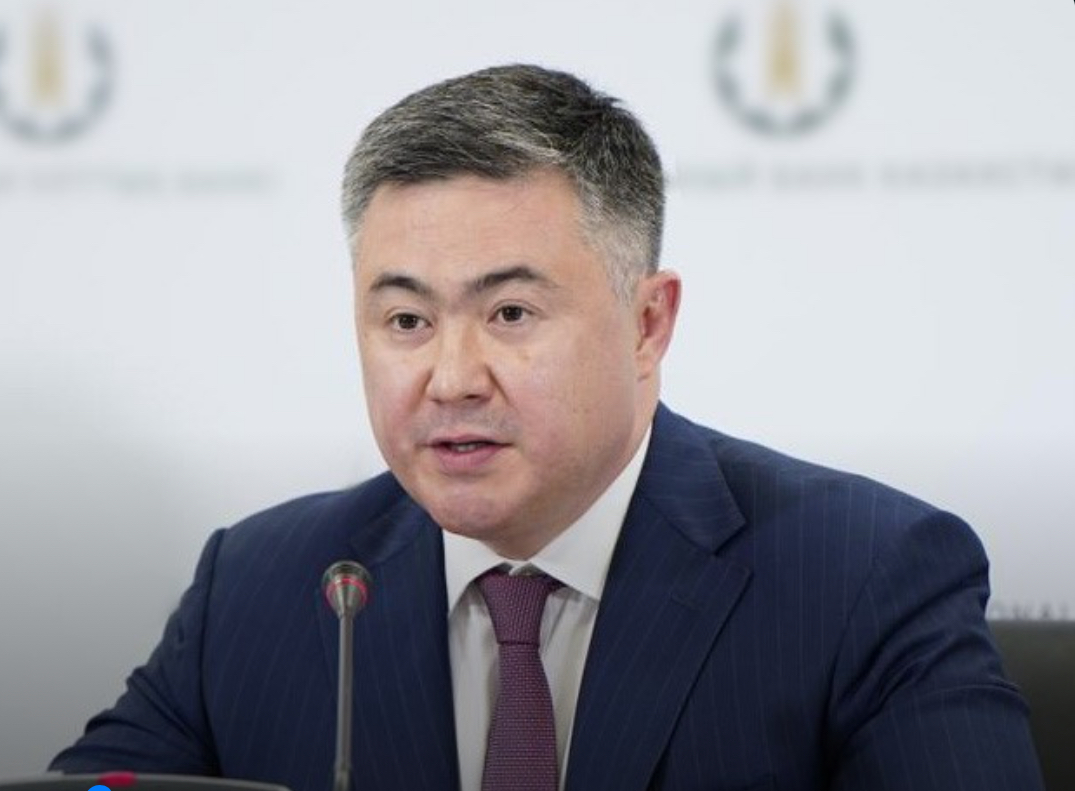ASTANA – Timur Suleimenov, the governor of the National Bank of Kazakhstan (NBK), discussed base rate reduction and economic outlook amidst global and domestic factors in his official statement published on Nov. 24.

Timur Suleimenov, the governor of the National Bank of Kazakhstan (NBK). Photo Credit: nationalbank.kz
According to him, the decision to reduce the base rate by 25 basis points to 15.75% was underpinned by updated forecasts and three key factors: inflation dynamics, domestic economic trends, and foreign economic conditions.
A steady deceleration of inflation, which lowered to 10.8% in October, was primarily attributed to a more restrained price increase for housing and utility services and a moderate growth in prices for non-food products.
“Monthly inflation in October was 0.7%, in line with its historical average,” Suleimenov said, noting that inflation expectations remain high, influenced by fuel and lubricant price hikes and food price dynamics.
With a 4.9% growth in the economy, business activity in Kazakhstan is expanding due to stable domestic demand, ongoing infrastructure projects, and recovery in the oil sector. However, concerns about overheating persist due to dynamic growth in economic sectors fueled by increased government spending and oil production.
Import of non-food consumer goods surged by 36.7% in the first nine months of 2023, indicating that domestic demand exceeds domestic supply capabilities. Investment activity expanded by 12.6% year-on-year, accompanied by a 3.5% year-on-year increase in real wages.
“In the external sector, we continue to see a decline in inflationary pressures, driven by the impact of tight monetary policy, positive food price movements, and a recent short-term slowdown in energy prices,” the governor shared.
Yet, short-term expectations anticipate a slight increase in pro-inflationary factors due to inflation dynamics in Russia and expected global food price hikes.
In the future, as the situation in trading partner countries stabilizes, the NBK expects the target values to be achieved and pro-inflationary pressure from external factors to soften.
The oil market stabilizes around $80 per barrel, with OPEC+ production cuts and Middle East conflict risks impacting prices. The base case assumes an average Brent oil price of $85 in 2024 and $80 in 2025.
The inflation forecast for Kazakhstan in 2023 improved to 9.3-10.3%, with 2024 and 2025 forecasts at 7.5-9.5% and 5.5-7.5%, respectively. Among the main risks are increased fiscal stimulus, unanchored inflation expectations, a possible increase in food prices from a low 2023 harvest, and direct effects of utility tariff increases.
GDP growth forecasts for 2023 remain unchanged, standing at 4.2-5.2%, but 2024 is revised down to 3.2-4.2%, linked to potential delays in increasing production at Tengizchevroil. Accordingly, the 2025 forecast is raised to 5.5-6.5% due to the possible failure to achieve initially planned oil production volumes in 2024.
With a further slowdown in inflation in 2024, the NBK will consider the feasibility of a gradual reduction in the rate, considering the need to maintain moderately tight monetary conditions in the medium term.
“The goal is to return inflation to the 5% target and anchor inflation expectations,” Suleimenov stated.
